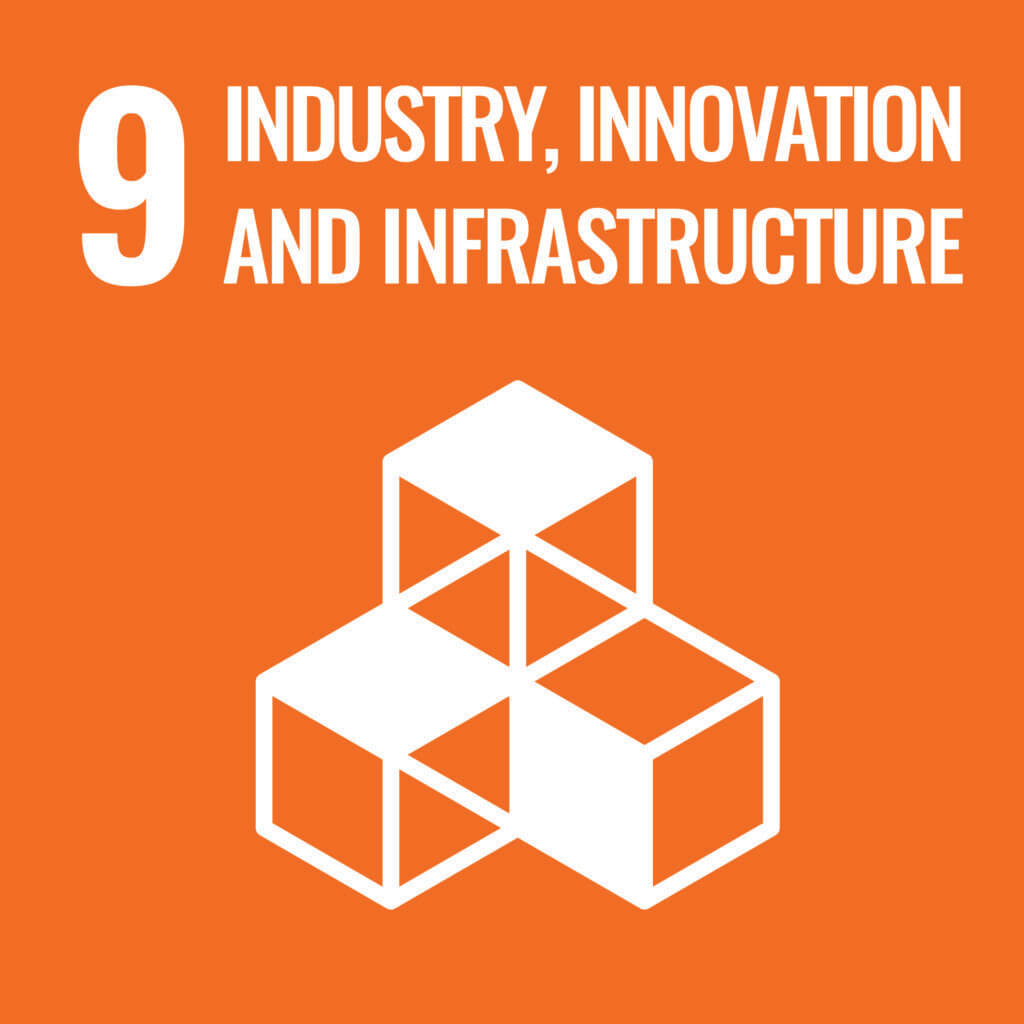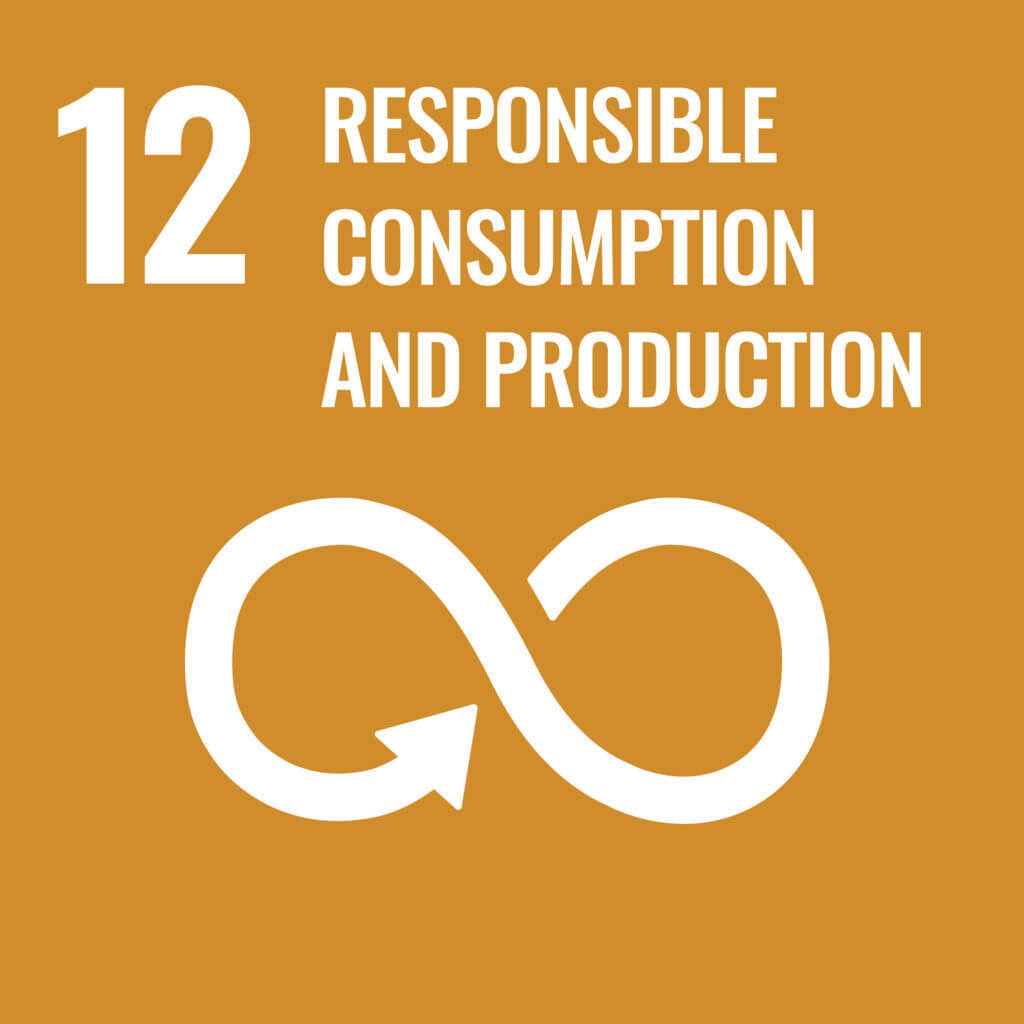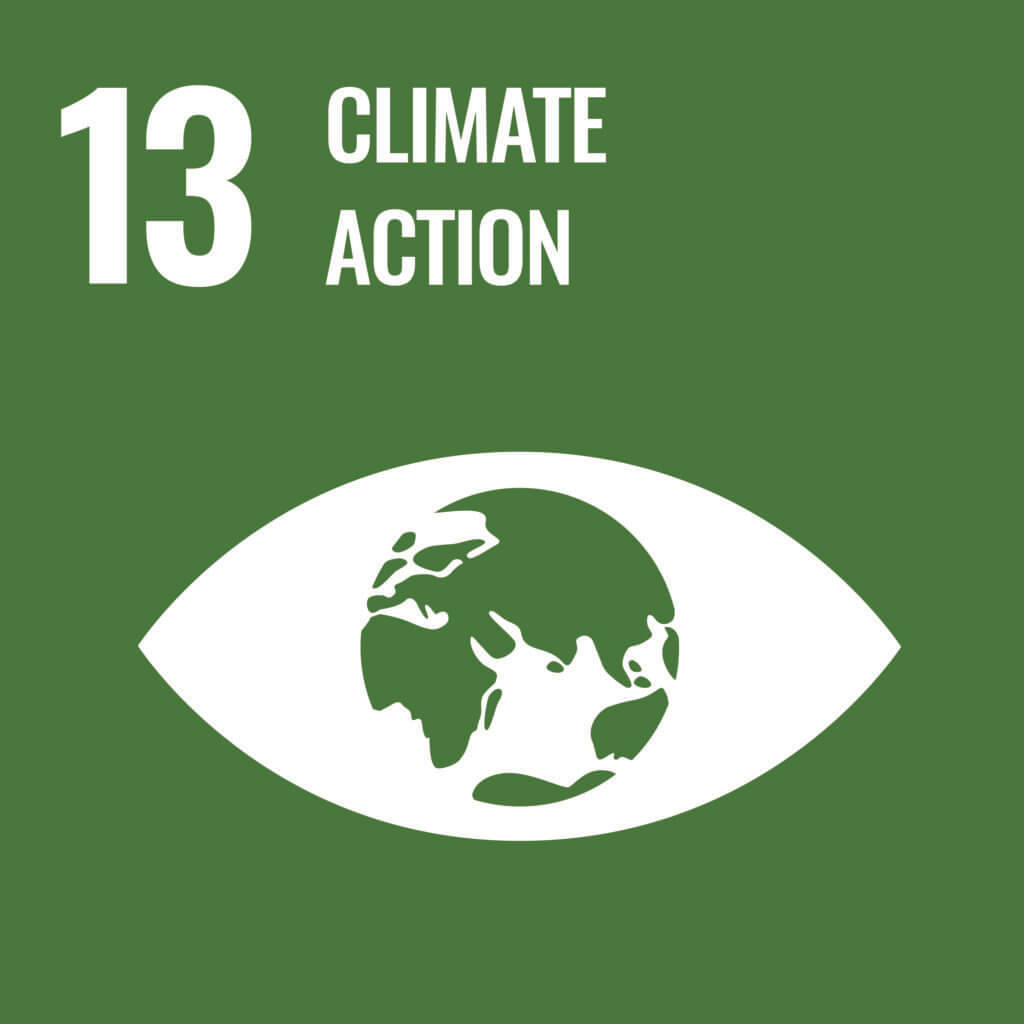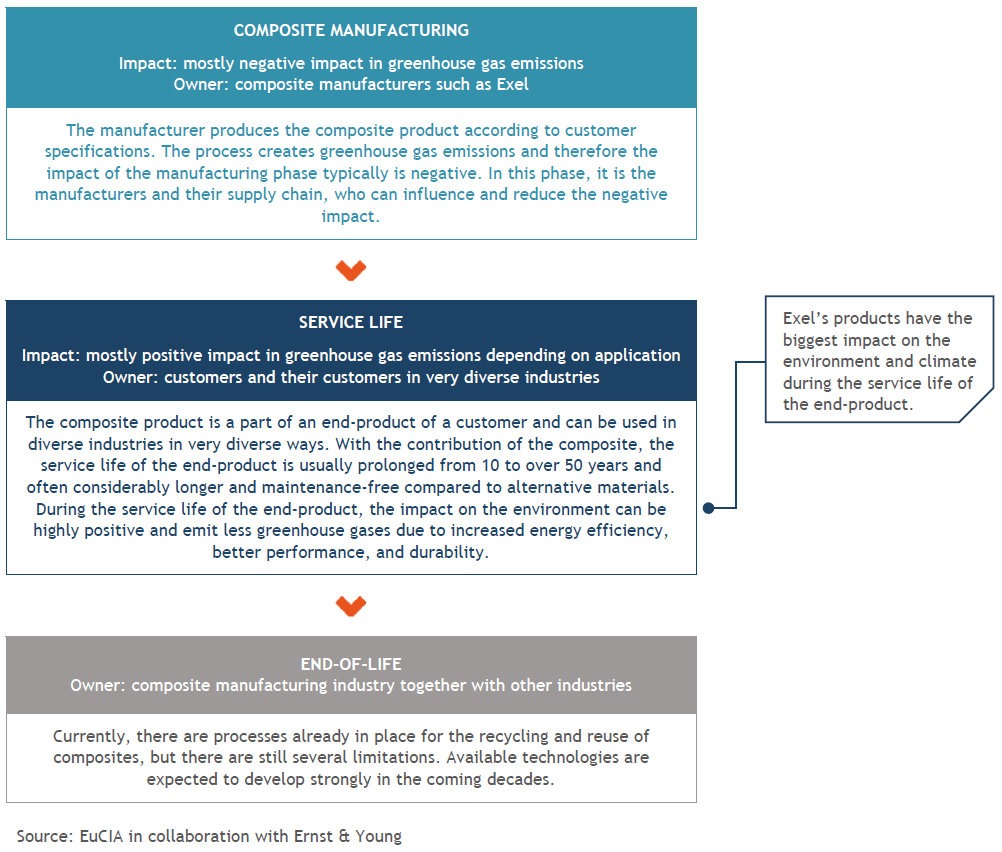Enabling products
Our sustainability focus areas:
Enabling products | Social handprint | Environmental footprint
Our aim is to develop sustainable, safe and reliable products that help our customers save resources and mitigate climate change.
Our contribution to the SDGs
We provide safe and reliable composite solutions that promote sustainable consumption: composites are durable and require little or no maintenance. Being lightweight yet strong, composites help save resources through energy and material efficiencies. We contribute to mitigating climate change by serving customer industries such as Wind Power, Buildings and Infrastructure, and Transportation.



Key policies and standards
- Corporate values
- Code of Conduct
- Group-wide quality management system
- QEHS Policy
- Chemical Policy
- ISO 14001/2015 (environmental management) and ISO 9001/2015 (quality management)
- Memberships in composites associations such as EPTA, EuCIA and ACMA
Customers are at the center of all Exel Composites’ business decisions and not meeting the agreed requirements could have negative impact on our business and reputation. Customer satisfaction is evaluated through regular customer surveys and using for example the Net Promoter Score-method (NPS).
Many of our customers require Exel to comply with their Supplier Code of Conducts and audit the company against their sustainability, quality and safety requirements. We also participate in sustainability programs invited by our customers.
Responsible products
The biggest impact of Exel’s products on the environment and climate is during the service life of the end-product they are a part of. Composites’ properties are what make them environmentally friendly, and an increasing sustainability focus also increases the demand for composites.
Composites are often lighter than alternative materials, they are durable and non-toxic. A composite product does not leak or emit into the air or the ground. In addition to their long service life, lower installation and maintenance costs, they often result in lower energy consumption over the lifecycle of the product.
Composites are also used in sustainability enhancing technologies and solutions that contribute to climate change mitigation or adaptation. For example, longer and stiffer wind turbine blades enable improved performance, window and door profiles with improved insulation properties enable more energy efficient buildings, lighter wall panels in public transportation enable reduced energy consumption, etc.
A reliable life cycle assessment for composites is challenging as they often are only one part of an end-product that consists of several components and materials. The European Composites Industry Association, EuCIA, has developed a tool to help composite companies to calculate the environmental impact of a composite product for the manufacturing phase, i.e. ‘from cradle to gate’.
Composites at end-of-life
The same properties that drive the decision to choose composites over alternative materials — durability and strength among others — also set economic and technological limitations to their recyclability.
As the demand for composites increases, the technologies available for composite recycling are also expected to develop strongly over the coming years. Exel’s ambition is to be part of this development by participating in industry projects and considering matters impacting recyclability already during product design.
According to EuCIA, for the coming ten years at least the main recycling route for composites is recycling into cement. Here, end-of-life composites are used as mineral raw material (approximately 2/3) and for energy recovery (approximately 1/3), thus effectively reducing overall CO2 emissions.
Lifecycle impact of composites




